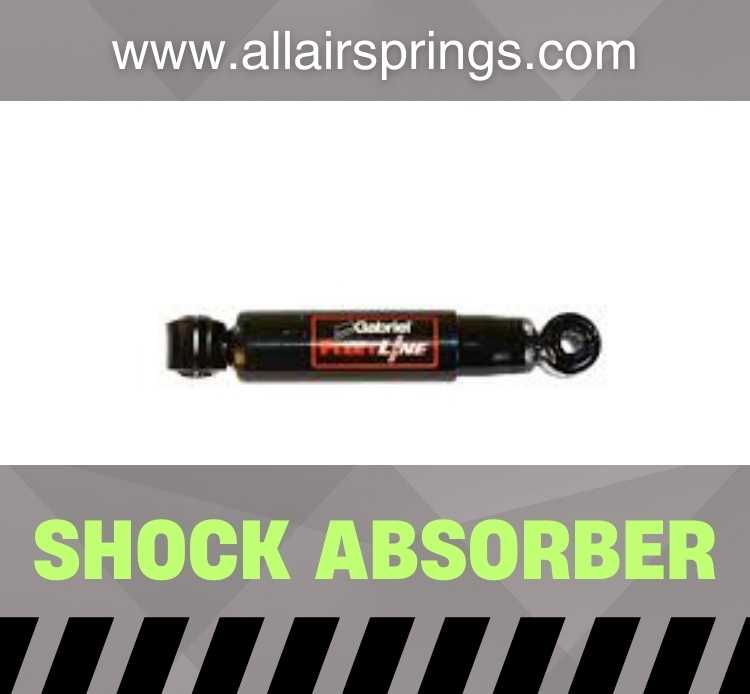
Gabriel Shock Absorber Cross Reference: A Comprehensive Guide for Finding the Right Fit
What is a Gabriel Shock Absorber?
Gabriel shock absorbers are a critical component of a vehicle’s suspension system, responsible for controlling the movement and impact of the vehicle’s springs and preventing excessive bouncing or swaying. These shock absorbers are designed to provide a smooth, comfortable ride, while also ensuring maximum vehicle stability, handling, and safety.
Gabriel shock absorbers are known for their superior quality, durability, and performance, making them a top choice for many drivers and mechanics. They are available in a variety of types and styles, including standard, heavy-duty, and gas-charged options, as well as custom-designed shocks for specific vehicle models.
In this chapter, we will explore the features and benefits of Gabriel shock absorbers in more detail, explaining how they work and why they are an essential part of any vehicle’s suspension system. We will also discuss some of the unique aspects of Gabriel shock absorbers that set them apart from other brands, and why they are a trusted choice for drivers around the world.
Why Use a Cross Reference for Gabriel Shock Absorbers?
When it comes to selecting the right Gabriel shock absorber for your vehicle, there are a lot of different factors to consider, including the make and model of your car, the type of driving you do, and your specific performance needs. With so many options to choose from, it can be challenging to determine which shock absorber is the best fit for your vehicle.
That’s where a cross reference comes in. A cross reference is a tool that allows you to match up the specifications of different shock absorbers, ensuring that you choose the right one for your vehicle. By using a cross reference, you can save time and money, avoid the hassle of trial and error, and ensure that your vehicle is always performing at its best.
In this chapter, we will explore the benefits of using a cross reference for Gabriel shock absorbers in more detail, highlighting some of the key advantages of this approach. We will also explain how a cross reference works and provide examples of situations where it would be particularly helpful. By the end of this chapter, you’ll have a better understanding of why cross referencing is such an important part of choosing the right Gabriel shock absorber for your vehicle.
How to Use a Gabriel Shock Absorber Cross Reference
Now that you understand the benefits of using a cross reference for Gabriel shock absorbers, it’s time to learn how to use one. While cross referencing may seem complicated at first, it’s actually a straightforward process that anyone can learn with a little bit of practice.
In this chapter, we will provide step-by-step instructions for using a Gabriel shock absorber cross reference, including where to find one and how to use it. We will explain how to interpret the different specifications and parameters listed in the cross reference, and provide tips for troubleshooting common issues that may arise when using a cross reference.
We will also include screenshots and visual aids to help you understand the process more clearly, so you can feel confident in your ability to use a cross reference effectively. By the end of this chapter, you’ll be ready to start using a cross reference to find the right Gabriel shock absorber for your vehicle with ease.
Common Types of Gabriel Shock Absorbers
As we mentioned earlier, Gabriel shock absorbers come in a variety of types and styles, each designed to meet specific performance needs and driving conditions. In this chapter, we will explore some of the most common types of Gabriel shock absorbers, including their features, benefits, and ideal applications.
We will cover standard shock absorbers, which are designed for everyday driving and provide a good balance of comfort and performance. We will also discuss heavy-duty shock absorbers, which are built to withstand extreme conditions and provide maximum durability and stability. Additionally, we will cover gas-charged shock absorbers, which use pressurized gas to provide superior performance and handling.
Throughout this chapter, we will provide examples of situations where each type of Gabriel shock absorber would be the best fit, so you can make an informed decision about which type to choose for your vehicle. By the end of this chapter, you’ll have a better understanding of the different types of Gabriel shock absorbers available and which one is right for your driving needs.
Tips for Maintaining and Replacing Your Gabriel Shock Absorbers
Now that you have a better understanding of Gabriel shock absorbers, how to cross reference them, and the different types available, it’s important to know how to properly maintain and replace them. By taking care of your shock absorbers, you can extend their lifespan and ensure that your vehicle is always performing at its best.
In this chapter, we will provide some tips and best practices for maintaining your Gabriel shock absorbers, including regular inspections, cleaning, and lubrication. We will also explain how to identify signs that your shock absorbers may need to be replaced, such as poor handling or a bumpy ride.
We will provide step-by-step instructions for how to replace your Gabriel shock absorbers, including the tools and materials you will need, and offer tips for ensuring a smooth and successful installation. Additionally, we will cover some common mistakes to avoid when replacing your shock absorbers, so you can avoid any unnecessary damage or complications.
By the end of this chapter, you’ll have a better understanding of how to properly maintain and replace your Gabriel shock absorbers, so you can enjoy a safe, comfortable, and high-performing ride for years to come.
For detailed information, you can contact us at torqueusa.com.


